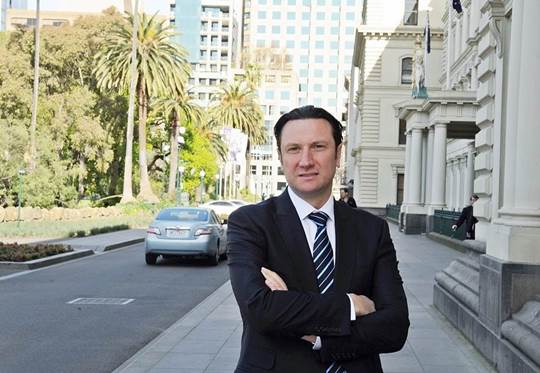- About Us
- Latest News
- Calendar
- Education
- School History
- ELA - For Toddlers
- Greek as a Second Lang.
- Greek as a Primary Lang.
- Conversational Skills (Online)
- Online Greek Courses
- Greek for Adults
- Ancient Greek
- Open Seminars
- Creative Drama
- Traditional Greek Dance
- Apply to Teach
- Holiday Program Enrolment
- Excursion - Museum
- School Polo Order Form
- Parent Notice to School
- Community Churches
- Membership
- Greek Centre
| GCM calls for support of the Greek people and their government in coming negotiations |
|
GCM President Bill Papastergiadis said of the referendum that; “it presented the Greek Government with a resounding approval of its negotiating position. It did not however confirm as some analysts are claiming a Greek desire to leave Europe or stop using the Euro.” Papastergiadis also went on to challenge the common misconception that the referendum had anything to do with Greece’s position in Europe. “Despite the “No” vote in the referendum, the Greek government’s and Greek people’s position on remaining in Europe and with the Euro are both unequivocally ‘yes’.” Greek Centre Director Jorge Menidis continued the call for IMF Governor, Joe Hockey and the Australian Commonwealth to play a bigger part in encouraging a debt relief driven solution for the Greek state. “The IMF’s own report late last week spoke of the need for debt relief to allow the Greek state to get back onto the path of growth” said Menidis. “Solutions must be sought to stop Greece’s youth, its educated masses and experienced workforce abandoning it to get away from the stifling measures the average Greek citizen faces.” About the Greek crisis • Greece is due to meet a repayment of 5.95bn euros in July to the IMF (452m) in treasury bills (2bn) and to the European Central Bank (3.5bn) • The official unemployment rate in Greece is 25.4%. Youth unemployment is running at 49.9% • The minimum wage in Greece in 2014 was 14% less than it was in 2008 • At the start of the GFC crisis, debt to GDP ratio was 120%. After 5 years of austerity, the debt to GDP ratio is currently at 180% • Over 8,000 economic migrant have come to Australia since the crisis commenced. This does not include Greek Australians who have returned. • The perilous state of the Greek economy and misery being endured by many in the Greek community as a result of economic conditions; • In May 2010 the Eurozone countries, the European Central Bank and the International Monetary Fund, launched a €110 billion bailout that was conditional on implementation of austerity measures; • Tripartite lenders to Greece are currently demanding further austerity measures, without future debt relief, in order to release the remaining funds from the current lending program agreement. • Pete Morici, a professor at the Smith School of Business at the University of Maryland and former chief economist at the U.S. International Trade Commission, explained it rather well:ÂÂÂ “[In exchange for] aid from richer EU governments, Greeks must accept draconian austerity measures,” he wrote. “These would further drive up unemployment, and shrink Greece’s economy and tax base at an alarming pace, placing in jeopardy eventual repayment of Athens’ remaining debt. … As currently constituted, a single currency may serve the One Europe designs of France and Germany, but make Greece and the other Mediterranean states nothing more than the victims of a northern conquest.” |



 The Greek Community of Melbourne (GCM) has called for a renewed focus on securing a deal for the Greek people and has called on Australian authorities to take a stance in support of a resolution, following the Greek referendum result overnight.
The Greek Community of Melbourne (GCM) has called for a renewed focus on securing a deal for the Greek people and has called on Australian authorities to take a stance in support of a resolution, following the Greek referendum result overnight.